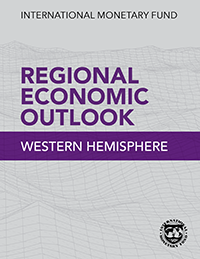Barbados: At a Glance
- Current IMF membership: 190 countries
- Barbados joined the Fund on December 29, 1970
- Quota: SDR 94.5 million (0.02 percent of total)
- Number of arrangements since membership: 3
- Outstanding Purchases and Loans (SDR): 206 million (September 24, 2020)
- Latest Article IV/Country Report: December 18, 2019
- Current IMF arrangement: Latest Report: June 8, 2020
Office Activities
What we do
Opened in 2019, the IMF office in Barbados is a central point of contact between with the IMF and the Government of Barbados with a primary focus to support the implementation of Barbados’ Economic Reform and Transformation (BERT) priorities set forth in the Fund’s Extended Arrangement under the Extended Fund Facility (EFF) for Barbados. In that capacity, the office follows economic developments and policies in Barbados, liaises between the Barbadian authorities and IMF staff in Washington, and coordinates IMF technical assistance. It is also a source of information about IMF views for the public, local and foreign analysts, investors, academic and research institutions, and Barbados’ international partners and their diplomatic missions.
IMF's Work on Barbados
-
June 28, 2024
The Executive Board of the International Monetary Fund (IMF) concluded the Third Reviews of the Extended Fund Facility (EFF) and the Resilience and Sustainability Facility (RSF) arrangements with Barbados on a lapse-of-time basis
-
June 28, 2024
Series:Country Report No. 2024/196
-
May 21, 2024
At the request of the Government of Barbados, an International Monetary Fund (IMF) team led by Michael Perks visited Barbados during May 13-21, 2024 to discuss the implementation of Barbados’ Economic Recovery and Transformation (BERT 2022) plan, supported by the IMF under the Extended Fund Facility (EFF) , and the implementation of reform measures under the Resilience and Sustainability Facility (RSF) arrangement.
-
Barbados: Financial Stability Report
May 10, 2024
Author/Editor:Petr Jakubik
Series:High Level Summary Technical Assistance Report No. 2024/018 -
Barbados: Technical Assistance Report-Financial Stability Report
April 29, 2024
Series:Technical Assistance Report No. 2024/035
Regional Economic Outlook

Western Hemisphere
Regional Economic Outlook
October 2022Recent developments in the Western Hemisphere—that is, the United States/Canada and Latin America and the Caribbean (LAC)—have been dominated by the impact of two distinct global shocks: the COVID-19 pandemic and then the Russian invasion of Ukraine. A third shock—the tightening of financial conditions—is now shaping the outlook. After contracting sharply in 2020, most of the Western Hemisphere’ economies recovered strongly in 2021 and early 2022, helped by the global recovery, the normalization of service sectors, and booming commodity prices. However, inflation pressures built up with pandemic-related disruptions, expansionary policies, rebounding demand, and the impact of the war in Ukraine on energy and food prices. The swift response of LAC’s monetary authorities to rising inflation—well ahead of other economies—helped contain price pressures and keep long-term inflation expectations anchored, but inflation remains high. Amid global monetary and financial tightening, and the ensuing slowdown in global growth and softening of commodity prices, activity is expected to decelerate throughout the Western Hemisphere in late 2022 and 2023, while inflation pressures are expected to recede gradually. Downside risks dominate the outlook and stem from tighter financial conditions, a more pronounced global slowdown, and entrenched inflation. For LAC, a sharp fall in commodity prices and social unrest are important risks. With inflation yet to abate and most economies still operating at or near potential, monetary policy should avoid easing prematurely and must stay the course. Clear communication of policy intentions will be key to reducing uncertainty and keeping inflation expectations anchored. Fiscal support deployed to mitigate the impact of inflation on the most vulnerable should be accompanied by compensating measures, where fiscal space does not exist, but also support monetary authorities’ efforts to tame inflation. Given rising financing costs, strengthening fiscal frameworks and advancing with inclusive fiscal consolidation—that protects key social objectives—will be essential to credibly putting public debt on a firm downward path while ensuring social stability. Boosting LAC’s medium-term growth requires raising productivity and good-quality public and private investment. Supply-side policies should focus on strengthening human capital, simplifying and modernizing labor regulations, and lifting barriers to firm entry and exit.
Read more: Regional Economic Outlook for the Western Hemisphere, October 2022



